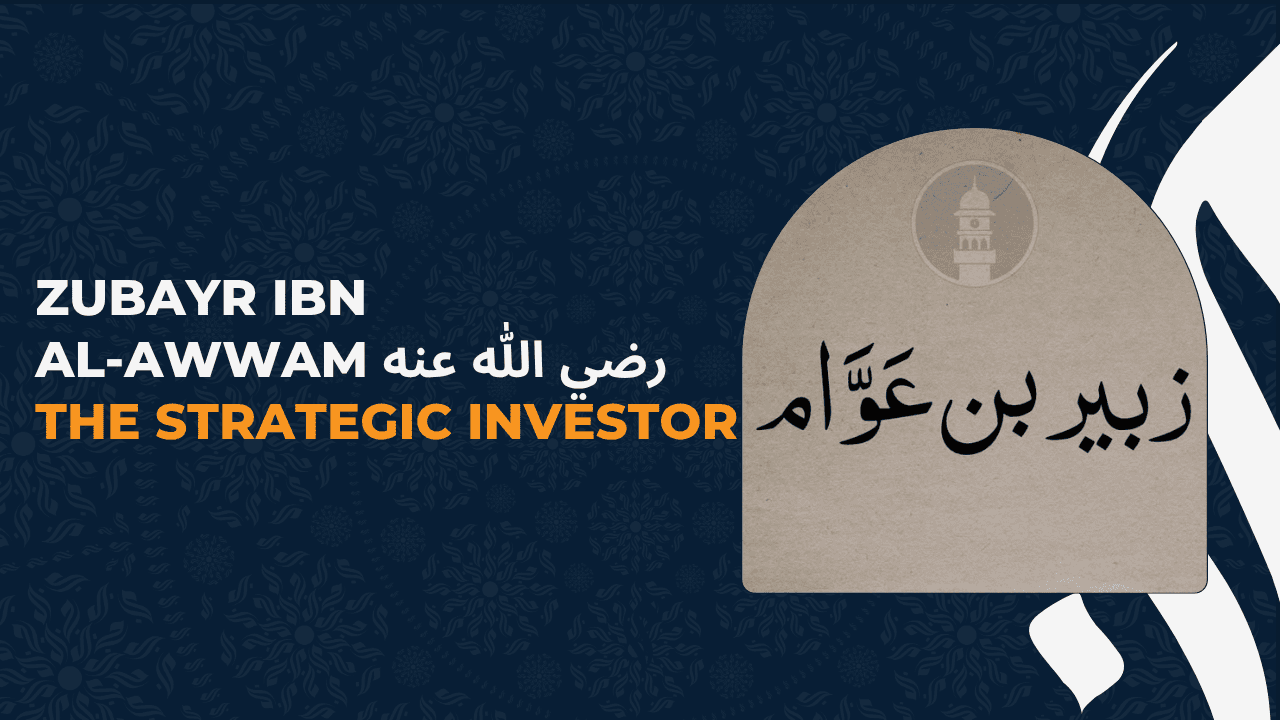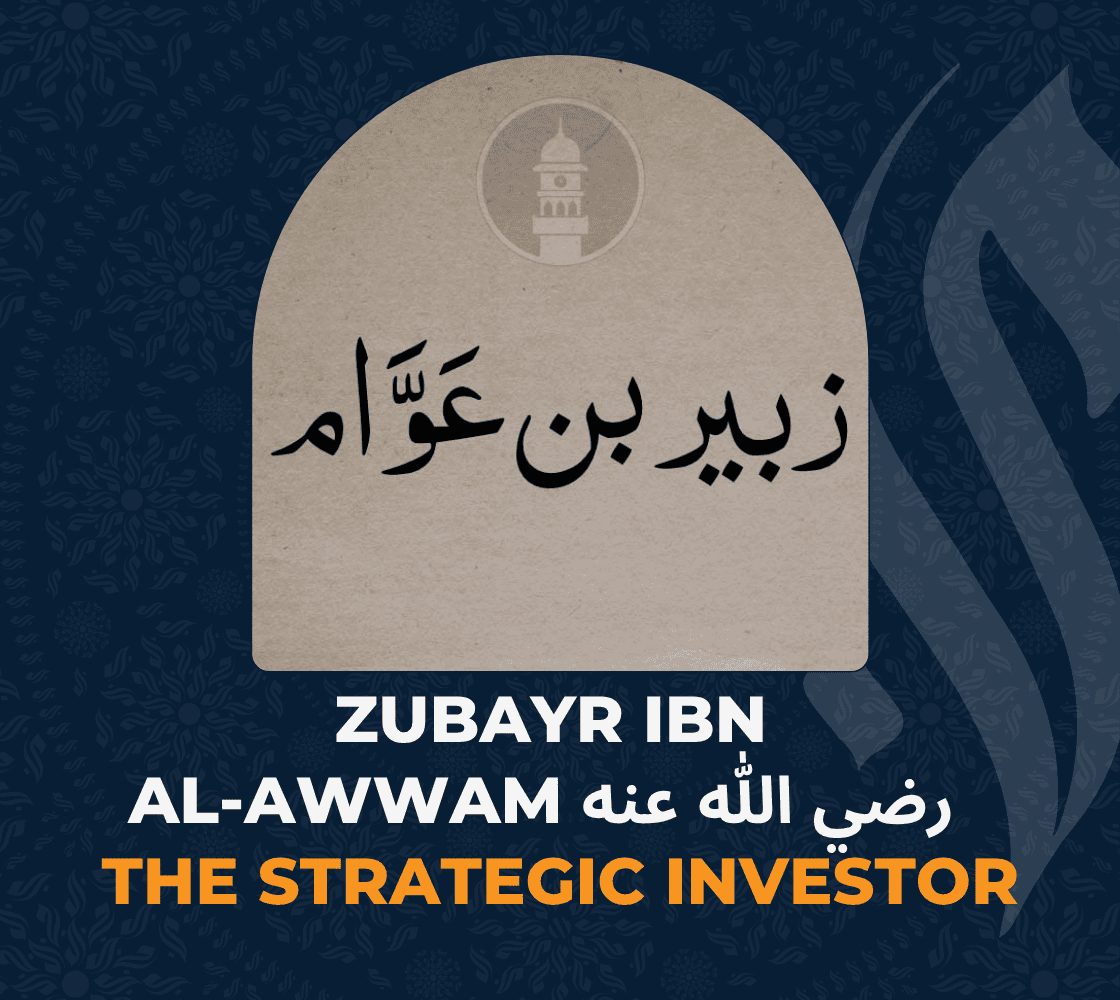

Who Was Az-Zubair ibn al-Awwam
(رضي الله عنه)
“Every Prophet has a Hawari, and my Hawari is Az-Zubair.”
Jami` at-Tirmidhi 3744
1. He Diversified Income
Az-Zubair (رضي الله عنه) did not depend on a single source of money. He divided his wealth across:
• Agricultural land
• Rental property
• Shares in trade routes
• Assets in multiple cities
If one market faced loss or drought, the others still produced revenue. This helped protect his family and community from sudden hardship.
Lesson for Muslim founders
Avoid depending on only one business or income stream. Build a primary business first, and once it is stable, add other income sources that support stability such as investments or property. Resilience grows through diversification.
2. He Took Calculated Risks
While known for courage, he acted with caution in business. He entered partnerships only when terms were clear and fair. When uncertainty increased or when the risk became too large, he withdrew. He was never driven by greed or blind hope.
Lesson for Muslim founders
Study opportunities before investing. Understand the downside. Expand only when the foundation is secure. Taking action is necessary but reckless decisions are not bravery, they are risk without wisdom.
3. He Focused on Productive Assets
3. He Focused on Productive Assets
People in his time often spent wealth on prestige and luxury. Az-Zubair (رضي الله عنه) focused instead on assets that produced long-term returns and supported daily life like food production. His wealth benefited his dependents and the community, not just his personal comfort.
Lesson for Muslim founders
Choose investments that increase real value. Avoid unnecessary luxury until strong stability is achieved. Wealth must serve purpose and provide benefit beyond personal desire.
Subscribe to Muslim Founder's Newsletter
The only newsletter you need to start & grow your Muslim business, Insha'Allah.
100% Free. No Spam Guaranteed.
4. He Planned His Succession Clearly
Conclusion
Entrepreneurship in Islam is a balanced pursuit of provision and responsibility. Az-Zubair ibn al-Awwam (رضي الله عنه) teaches us that business growth must combine:
• Courage in seeking new opportunities
• Wisdom in managing risk
• Discipline in financial decisions
• A commitment to justice and family welfare
Muslim founders today carry the same amanah. May Allah (سبحانه وتعالى) give us the strength to build with intention, plan with wisdom, and leave behind a legacy of benefit and righteousness. Ameen.
Subscribe to Muslim Founder's Newsletter
The only newsletter you need to start & grow your Muslim business, Insha'Allah.
100% Free. No Spam Guaranteed.


